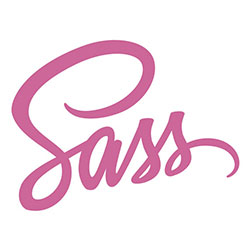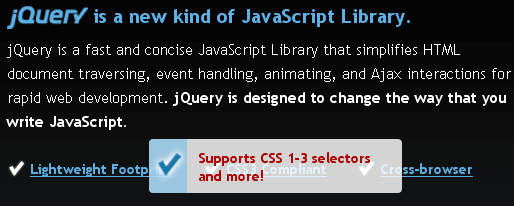Unicode JavaScript Variables and Functions
We all get a kick out of unicode symbols, as we all saw in my Unicode CSS Classes post, and just as we can use them for CSS classes, we can use them for JavaScript variables and functions as well! Let's say you want to shave a few bytes of post-minified JavaScript byes by setting false equal to a variable. Why not do so by using a unicode variable?
var ಠ_ಠ = false;
if(someVar === ಠ_ಠ) { // If someVar is false...
// ...
}
Hilarious. The evil eyes signal a negative result. What about saving a few byes on true? The Beatles once said that "All You Need is Love", so let's use a heart:
var ❤ = true;
if(someVar === ❤) {
// ...
}
You can do the same with function names. Functions can be named after unicode symbols:
function ಠ(arg) {
// ...
}
Of course all of this is a bit ... insane, and you should never use unicode symbols, but nonetheless it's possible. Imagine starting a new job and seeing those symbols as meaningful variables -- you'd quit immediately! Hilarious!
![Designing for Simplicity]()
Before we get started, it's worth me spending a brief moment introducing myself to you. My name is Mark (or @integralist if Twitter happens to be your communication tool of choice) and I currently work for BBC News in London England as a principal engineer/tech...
![Write Simple, Elegant and Maintainable Media Queries with Sass]()
I spent a few months experimenting with different approaches for writing simple, elegant and maintainable media queries with Sass. Each solution had something that I really liked, but I couldn't find one that covered everything I needed to do, so I ventured into creating my...
![Fix Anchor URLs Using MooTools 1.2]()
The administrative control panel I build for my customers features FCKEditor, a powerful WYSIWYG editor that allows the customer to add links, bold text, create ordered lists, and so on. I provide training and documentation to the customers but many times they simply forget to...
![Duplicate the jQuery Homepage Tooltips Using MooTools]()
The jQuery homepage has a pretty suave tooltip-like effect as seen below:
Here's how to accomplish this same effect using MooTools.
The XHTML
The above XHTML was taken directly from the jQuery homepage -- no changes.
The CSS
The above CSS has been slightly modified to match the CSS rules already...





I could see this improving minification when processing files with many variables/methods in the same scope (if they don’t use it already, I’m not sure).
Unicode characters are useless for minification, each unicode character uses 2 bytes instead of 1 in utf8. Also, there is no reason not to use unicode in variable names if you properly declare encoding in your html.
Actually, some characters take up to 4 bytes, not just 2. The Kannada letter TTHA in the example rakes 3 bytes for example, so “false” was minified from 5 bytes to 7 :P
lol, it’s a funny joke. but I think it may be realize if some protocol is developed in the future. so cool!